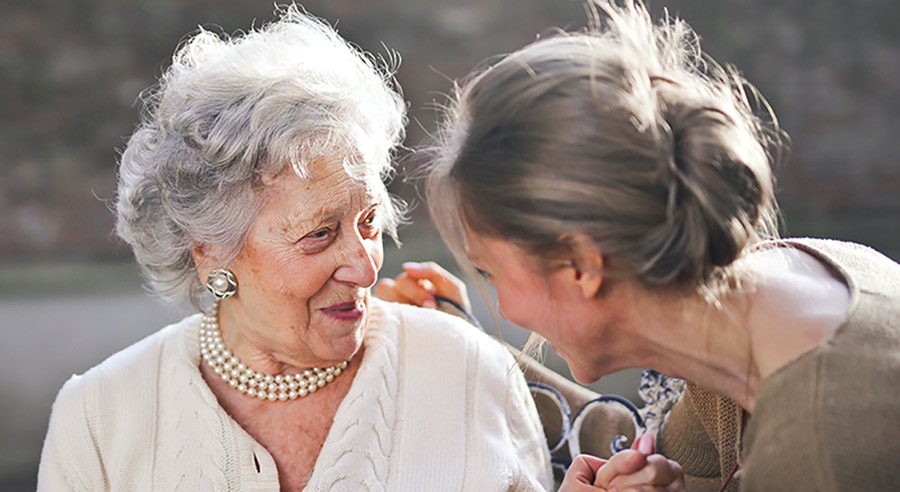Understanding the Link Between Home Care Providers, In Home Caregivers, and NDIS Support Coordinators
Exactly How In Home Care Givers Address the Distinct Difficulties and Emotional Demands of Families Looking For Support for Their Family Members
At home caregivers play a critical duty in browsing the intricacies faced by family members looking for assistance for their loved ones. By comprehending unique family dynamics and offering customized psychological support, these specialists not just address instant treatment demands however also foster a setting of trust fund and open interaction (ndis plan manager).
Understanding Family Members Dynamics
Understanding household characteristics is important for providing efficient in-home treatment, as each family members operates within an unique collection of partnerships and communications. These characteristics include various components, including communication styles, duties, and class structure that affect exactly how care is supplied and obtained. The caregiver needs to acknowledge these elements to make sure that care strategies align with the family's values and assumptions.
Different households may show unique patterns of communication, such as collective methods or ordered structures. In some families, a primary decision-maker may hold significant influence, while in others, decisions might be extra democratic. Understanding these patterns helps caregivers customize their strategies to fit the family members's certain needs.
Furthermore, social backgrounds play a crucial function fit family members characteristics. Caretakers need to be culturally qualified, recognizing and appreciating diverse practices and ideas that may influence treatment preferences.
Inevitably, an extensive understanding of household characteristics helps with improved interaction, cultivates depend on, and boosts the caregiver's capability to support the family effectively. By recognizing the detailed internet of partnerships and duties, caretakers can produce a supportive atmosphere that advertises well-being for both the individual getting treatment and the family all at once.
Offering Emotional Support
Providing psychological support is a necessary element of at home treatment that dramatically improves the well-being of both the specific getting care and their relative. In the context of caregiving, psychological assistance includes active listening, compassion, and validation of sensations. Caretakers are educated to identify the psychological battles that families deal with, such as regret, stress and anxiety, and seclusion, and to supply a compassionate visibility that relieves these problems.
By fostering open interaction, caretakers develop a secure room for relative to express their issues and worries. This dialogue not just motivates emotional launch however likewise reinforces trust in between the caretaker and the family. In addition, caregivers can offer functional strategies to aid families handle stress and promote strength.

Inevitably, the psychological assistance provided by at home caretakers improves the quality of life for both customers and their families, advertising a more caring and understanding caregiving atmosphere. This all natural approach guarantees that emotional requirements are dealt with alongside physical health considerations.
Managing Daily Treatment Tasks
Taking care of day-to-day treatment tasks is a critical facet of in-home treatment that makes certain individuals get the support they require to keep their health and independence. Caregivers play a vital role in assisting with tasks of daily living (ADLs), that include bathing, clothing, grooming, and meal preparation. By handling these obligations, caregivers aid alleviate the physical and psychological worries that families might deal with while caring for their liked ones.
In enhancement to personal treatment, caregivers are also charged with drug administration, making sure that clients follow recommended dosages and routines. This oversight is essential for preserving wellness and preventing adverse impacts from missed out on or wrong drugs. Caregivers commonly aid with movement, giving support for clients relocating around their homes, therefore lowering the danger of drops and boosting overall security.

Cultivating Open Communication
Reliable administration of day-to-day treatment tasks frequently hinges on the quality of interaction in between caretakers, clients, and their households. Open up interaction fosters an atmosphere where issues, preferences, and comments can be easily exchanged, guaranteeing that treatment is tailored to satisfy individual requirements. Caretakers ought to prioritize normal check-ins with both customers and their family members, promoting discussions that attend to any issues or modifications in treatment requirements.
Utilizing numerous communication approaches-- such as face-to-face meetings, call, and composed updates-- can boost understanding and provide households with peace of mind. It's necessary for caregivers to proactively pay attention, demonstrating empathy and respect for the emotional landscape of the household. Motivating questions from member of the family can likewise assist make clear care plans and enhance the caregiver's dedication to transparency.
Additionally, preserving open lines of interaction allows caregivers to recognize and react without delay to any type of shifts in a customer's wellness status or emotional well-being. This aggressive method not only enhances the caregiver-client dynamic however additionally equips family members to get involved proactively in the care process. Ultimately, cultivating open communication is important for boosting the quality of in-home treatment and advertising a helpful environment for all included.
Building Trust Fund and Relationships
Depend on is the foundation of successful in-home treatment, as it develops a foundation for significant relationships between caregivers, customers, and their families. Structure this trust fund calls for consistent, clear interaction and an authentic commitment to you could look here the health of those entailed. look at this web-site Caretakers should demonstrate dependability with punctuality, adherence to care strategies, and responsiveness to the requirements and choices of clients.
To promote count on, caretakers should participate in active listening, guaranteeing that family members really feel heard and recognized. This entails not only dealing with prompt worries however additionally preparing for future demands, thereby empowering households and improving their sense of control. Developing rapport through shared experiences and respectful interactions can better solidify these connections.
Additionally, caretakers must be educated to identify and attend to the emotional intricacies encountered by family members. By showing compassion and empathy, they can alleviate unpredictabilities and concerns, reinforcing depend on. Regular updates and check-ins with member of the family can additionally improve openness, enabling them to feel involved and informed concerning their loved one's treatment.
Eventually, building count on and nurturing partnerships in in-home care is a collective procedure that significantly affects the top quality of care provided, cultivating an encouraging setting that profits every person entailed.
Conclusion
By recognizing household dynamics, offering psychological support, and promoting open interaction, caretakers enhance the total caregiving experience - home advice care providers australia. Their ability to handle daily care tasks while building trust and solid partnerships grows an encouraging setting for customers and their families.
Understanding family members characteristics is important for supplying effective at home treatment, as each family members runs within a distinct set of communications and connections.Giving psychological support is an important component of in-home care that considerably boosts the well-being of both the specific obtaining care and their household members. By taking on these duties, caretakers aid alleviate the physical and emotional problems that family members may encounter while caring for their enjoyed ones.
Effective management of day-to-day care tasks commonly hinges on the quality of communication between caretakers, customers, and their households - home care providers.Trust fund is the keystone of successful in-home treatment, as it develops a structure for significant connections in between caregivers, customers, and their households